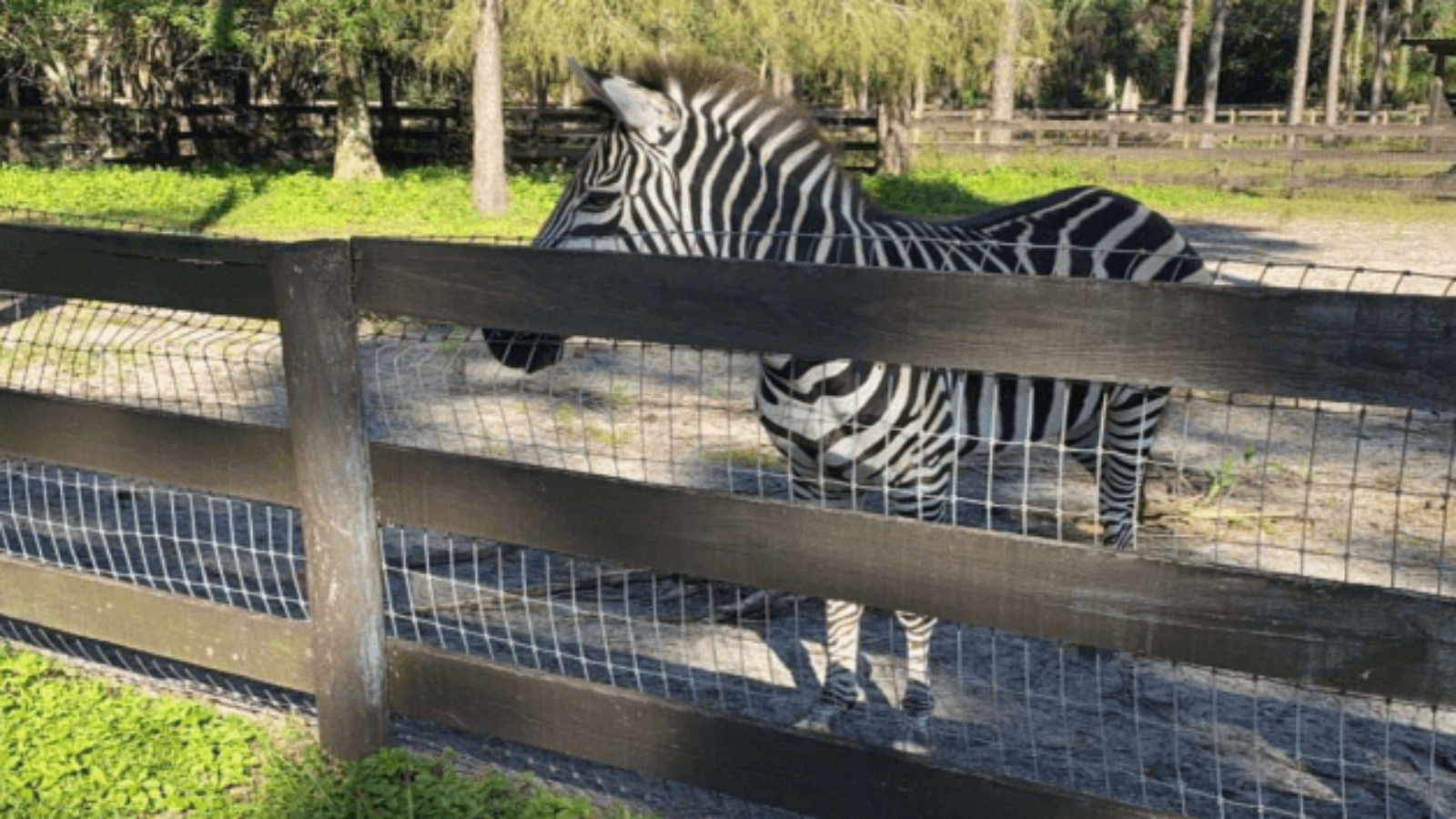Many families live with dogs, cats, bunnies, and even snakes, but few people get the chance to live with a zebra. In an already strange year, I have been given that unusual chance.
The Good Earth Farm and Chocolate Chip Animal Rescue in Loxahatchee, Florida, is owned and operated by Nancy Freid and home to a variety of animals ranging from baby guinea pigs (pups) to a zebra fondly known as Ozzie. For the next four months, Ozzie is my “neigh”bor (although he sounds more like a donkey than a horse) and helps to provide much needed breaks from online learning.
For the past seven winters, I have had the opportunity to go to Florida and compete in the Winter Equestrian Festival (WEF). WEF is an international riding competition for the hunter/jumper discipline, held in Wellington, the “horse capital of the world.”
In a typical year, I do asynchronous learning by completing notes and homework by myself or with a tutor. Sticking with the theme of 2020, both competing in Florida and keeping up with school this year is, well, different.
My primary focus is normally on riding and caring for horses in Florida, but this year safety became the top priority. Normally, I alternate between Florida and Massachusetts for two-to-three-week intervals throughout the winter. This fall, I decided to go Florida for the entire winter to minimize exposure traveling. This meant I would have to rent a place to live for four months of this year’s winter trimester.
My mom stumbled upon The Good Earth Farm somewhere deep in a Facebook group entitled “South Florida Stalls and Housing.” Next thing I knew, I was going to be living on an animal rescue.
The addition of online learning and Zoom recordings has actually made it easier to keep up with schoolwork and stay in touch with teachers while I am competing, but I am still getting used to the mid-Zoom interruptions of parrots squawking, miniature horses neighing, chickens clucking, and donkeys braying.
The Good Earth Farm was not always so lively and diverse, though. Freid began the rescue almost 37 years ago, when her daughter first started riding ponies.
“When my daughter was really young, she started riding ponies,” Fried said. “And when she got taller, we didn’t just throw them away; we always kept them or made sure they went to really good homes.”
After witnessing the terrible condition many of the ponies arrived in, Freid realized how many people view their pets: as objects.
“I noticed that a lot of animals are sort of trashed,” she explained. “People don’t think that animals have feelings. They feel like animals don’t have feelings because [the animals] can’t express [their feelings] to them.”
Freid decided to start rescuing ponies in addition to keeping her daughter’s, and she picked a up a few more animals along the way.
“Then I got really big. I had way too many animals. I got into pigs, and then donkeys, and then I got the zebra. This is my third zebra,” she added, laughing.
However, beyond the lush pastures and ample feed provided at the rescue, Freid has found that she has the unique ability to heal wounded animals from the inside out.
“I have always been a psychic,” Freid stated. “So, I know what’s wrong with [the animals]. I felt like it’s my job, as a gift that I have from God, to do something about it.”
While the animals are recuperating from their traumatic pasts, I enjoy the benefits of living with them. Situated on a 20-acre piece of land, I make good use of the 15 minutes between classes to walk around the farm and see all the animals.
Kyla Sullivan, a junior from Wallingford, Connecticut, is also living at The Good Earth Farm this winter. While she did not picture herself living in such a unique location, Kyla believes she will eventually be able to acclimate to the farm.
“I think it will take some time getting used to, that’s for sure,” she noted. “I’ll definitely get over my fear of bugs … maybe not.”
As for myself, I can think of a lot less interesting and enjoyable places to be during a pandemic. If I cannot be surrounding by people, I may as well be surrounding by four-legged friends.
This story originally ran in The Willistonian.

